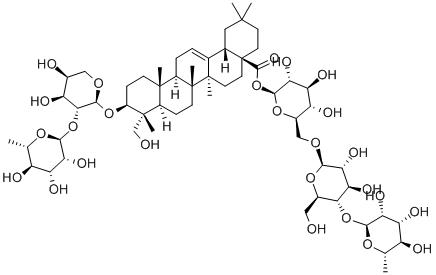Absorption and metabolism of L-carnitine
-
Last Update: 2020-04-03
-
Source: Internet
-
Author: User
Search more information of high quality chemicals, good prices and reliable suppliers, visit
www.echemi.com
2015-01-28 classification: efficacy 0 people commented that the chemical structure of L-carnitine (also known as L-carnitine, L-carnitine, vitamin BT, and L-carnitine) is similar to choline, similar to amino acids, but it is not amino acids, and can not participate in protein biosynthesis Because people and most animals can meet their physiological needs by synthesizing L-carnitine in vivo, it is not really a vitamin, but a substance similar to vitamin L-carnitine is an important substance related to energy metabolism in animal flesh Its main function is to participate in fatty acid metabolism as a carrier in the form of fatty acyl carnitine, oxidize fat in cell mitochondria and convert it into energy, so as to reduce fat accumulation in vivo In the U.S and European markets, L-carnitine based fat reducing bodybuilding food is very popular, and its products sell well L-carnitine is very soluble in water, and carnitine can be completely absorbed by human body The absorption site of L-carnitine in vivo is the small intestine, but the specific absorption process and site of carnitine (free or esterified) through the intestinal mucosa are not clear It was found that the average peak concentration of L-carnitine in blood was 48.5 μ mol / L and the peak time was 5 hours The concentrations of plasma free and total carnitine were 58 μ mol / L and 69 μ mol / L respectively, and the peak time was 3.5 h The elimination half-life of L-carnitine was 6.5h and 3.9h, respectively The star dose-dependent elimination and 24-hour urinary drug excretion were 70% and 82%, respectively Single oral administration of L-carnitine 2G or 6G, bioavailability was 16% and 5% respectively, 24-hour urinary drug excretion was 6% and 4% respectively The concentration of carnitine in adrenal gland was the highest, followed by that in heart, bone, muscle, adipose tissue and liver The concentration of carnitine in kidney and brain was 40 times that in blood The concentration of carnitine in human body fluctuates greatly due to the differences of measurement methods and experimental objects The content of carnitine in plasma measured by biological methods is between (0.86-2.87) mg / 100mL, and that in muscle measured by enzymatic methods is between (0.457-2.479) μ g / g (dry basis) The absorbed carnitine is metabolized in human body and then excreted from urine in the form of free carnitine In addition to exogenous L-carnitine from food, human beings can also synthesize endogenous carnitine by themselves Liver and kidney are the main organs of carnitine synthesis They are transformed from lysine to e-trimethyl-p-hydroxylysine Y-butyl betaine is produced under the action of aldolase and aldehyde oxidase, and then transformed into L-carnitine by hydroxylase Besides lysine, methionine, vitamin C, nicotinic acid and vitamin B6 are also needed in the biosynthesis of L-carnitine.
This article is an English version of an article which is originally in the Chinese language on echemi.com and is provided for information purposes only.
This website makes no representation or warranty of any kind, either expressed or implied, as to the accuracy, completeness ownership or reliability of
the article or any translations thereof. If you have any concerns or complaints relating to the article, please send an email, providing a detailed
description of the concern or complaint, to
service@echemi.com. A staff member will contact you within 5 working days. Once verified, infringing content
will be removed immediately.







